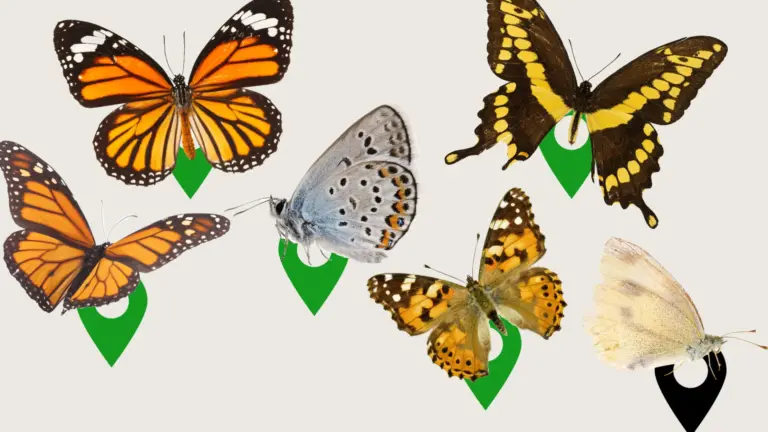
Not all butterflies get equal treatment among community scientists who report sightings of them. (Composite: Letty Avila. Image source: iStock; Smithsonian.)
When it comes to butterflies, people prefer pretty ones. That’s a problem for scientists.
Scientists studying biodiversity rely on public data, but USC Dornsife researchers found that butterfly sightings on one popular online platform are skewed by personal preferences.
Research shows humans often perceive attractive people as more intelligent, healthier, better leaders and more trustworthy. It turns out this bias extends to the insect world.
A new study by scientists at the USC Dornsife College of Letters, Arts and Sciences reveals that data reported on a popular community science platform is biased. On iNaturalist, butterflies with captivating markings, easily identifiable features or those that are familiar species are reported more frequently than obscure species with no distinct qualities.